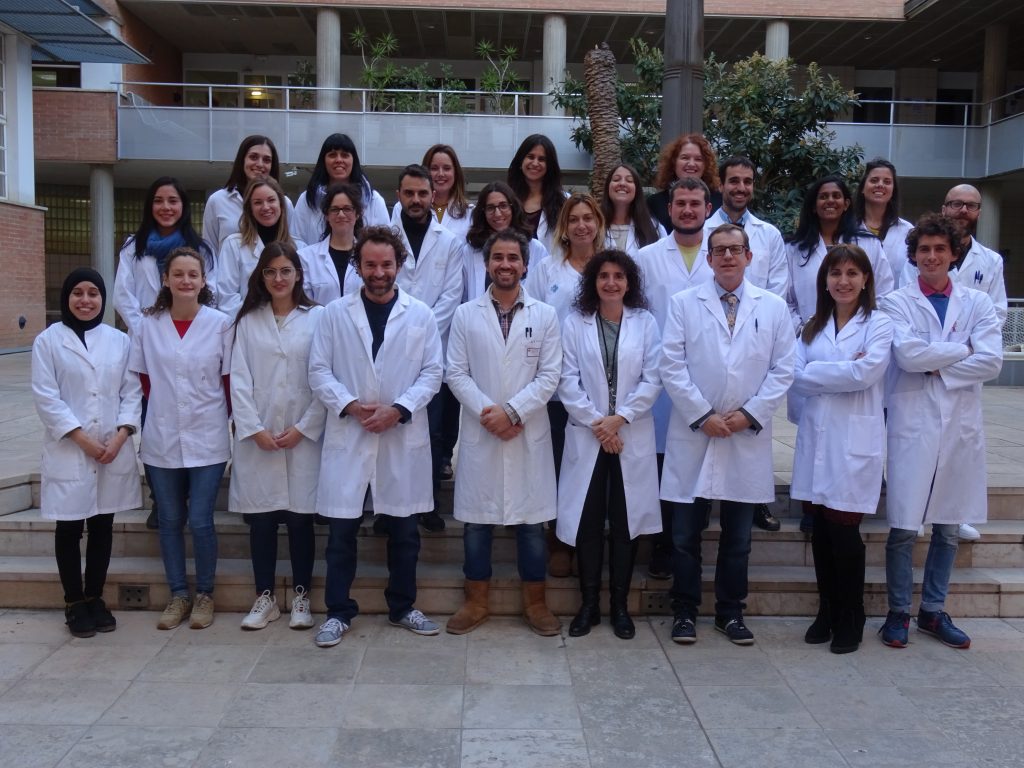Press notes 10/06/2021
The Mediterranean diet not only helps with weight loss, it also helps modify the gut health
The Predimed-Plus study shows that the Mediterranean diet has the capacity to modify our microbiota. This diet induces changes in our microbiota that could be related to its healthy effect

The Predimed-Plus study shows that the Mediterranean diet has the capacity to modify our microbiota. This diet induces changes in our microbiota that could be related to its healthy effect
A recent study by CIBEROBN researchers from the Rovira i Virgili University (URV) and the Hospital Virgen de la Victoria (University of Malaga) has been published in the prestigious scientific journal American Journal of Clinical Nutrition. This study has shown that, with an intervention to increase adherence to the Mediterranean diet and an intensive weight loss program, beneficial changes in the intestinal microbiota occur after one year.
This study was conducted within the framework of the PREDIMED-Plus study where one group of participants followed a Mediterranean diet with energy restriction, physical activity and behavioral changes, and another group of participants followed a Mediterranean diet without caloric restriction, without any weight loss guidelines. The results of the study were that the participants who followed the Mediterranean diet and physical activity recommendations lost more weight (4.2 kg) than the participants who followed the unrestricted Mediterranean diet, who lost 0.2 kg.
The beneficial effects of following a healthy diet such as the Mediterranean diet are well known. Most previous studies have focused solely on the effects of diet or physical activity on the gut microbiota individually. However, in this unique study, the results of a holistic approach that aids weight loss and its effects on the gut microbiota have been investigated.

The main results of this study show that participants who followed the Mediterranean diet with calorie restriction lost more weight and reduced body mass index (BMI), waist circumference, blood sugar levels, triglycerides and improved “good” cholesterol levels compared to the other group who followed a Mediterranean diet without any weight loss guidelines. These changes were accompanied by a reduction of “bad” microbial genera such as Haemophillus, Ruminiclostridium 5, Butyricicoccus and an increase of “good” genera such as Ruminococcacea NK4A214, Coprobacter. Some of the changes in gut microbial genera were also positively associated with reduced weight, waist circumference and BMI.
Interestingly, both groups increased adherence to the Mediterranean diet, which was observed with some consistent changes in microbial genera that have previously been associated with Mediterranean diet consumption. The increase in “good” microbial genera was also positively associated with the Mediterranean diet score in the general population.
Dr. Francisco J Tinahones, Principal Investigator at the University of Malaga comments: “The Mediterranean diet has been shown to have prebiotic capacity, favorably modifying the bacteria in our gut”.
Opening avenues for future research
Dr Jordi Salas, Principal Investigator of the Rovira i Virgili University, points out: “Previous studies have been carried out on the changes in microbiota with the Mediterranean diet, but this is the first one that compares the Mediterranean diet with another Mediterranean diet that is also low in calories and produces weight loss”.
One of the most striking changes on the microbiota is related to the regulation of bile acids. These results could open up avenues of future research to explore various altered metabolic pathways that could modulate the intestinal microbiota.
The researchers acknowledge that future studies are needed to replicate these results and to delineate the mechanisms by which changes in the gut microbiota may have beneficial effects on the regulation of body weight and cardiovascular risk.
This study has been carried out by Jananee Muralidharan, doctoral researcher of the Martí i Franquès COFUND Doctoral Programme, from the Human Nutrition Unit of the Rovira i Virgili University, directed by Prof. Jordi Salas-Salvadó, main researcher of the CIBEROBN group and the Pere I Virgili Health Research Institute, Dr. Mònica Bulló associate professor of the Department of Biochemistry and Biotechnology of the same institutions), Dr. Isabel Moreno Indias (postdoctoral researcher at IBIMA, Malaga) and Dr. Francisco Tinahones (Professor at the University of Malaga, scientific director of IBIMA, Malaga).
Reference article: Muralidharan J, Moreno-Indias I, Bulló M, Lopez JV, Corella D, Castañer O, Vidal J, Atzeni A, Fernandez-García JC, Torres-Collado L, Fernández-Carrión R, Fito M, Olbeyra R, Gomez-Perez AM, Galiè S, Bernal-López MR, Martinez-Gonzalez MA, Salas-Salvadó J, Tinahones FJ. Effect on gut microbiota of a 1-y lifestyle intervention with Mediterranean diet compared with energy-reduced Mediterranean diet and physical activity promotion: PREDIMED-Plus Study. Am J Clin Nutr. 2021 May 21:nqab150. doi: 10.1093/ajcn/nqab150. Epub ahead of print. PMID: 34020445.
